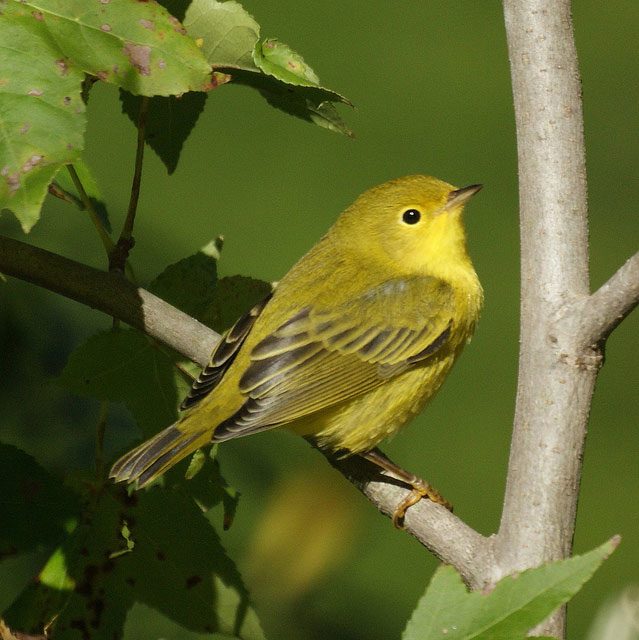
Sponsored by the New Jersey Audubon Society, the WSB is a 24-hour ornithological treasure hunt that finds dozens of birding teams combing the state to spot as many different species as possible and competing for prizes in myriad birding categories. On the second Saturday in May, birders from around the country set out with binoculars and high-powered scopes to spot species from High Point to Cape May. Final tallies are reported at midnight. Top teams typically spot 150-200 species.
“We have extraordinary natural diversity in this state, and most people, including many residents, don’t realize it,” says Pete Dunne, director of the Cape May Bird Observatory and founder of the World Series of Birding. Since its inception in 1984, Dunne has watched the event grow from just 14 teams to the 76 that participated this year, including 16 youth teams and even one from Israel. “This competition draws a lot of attention, and it’s become a way to raise money and promote New Jersey as a fantastic state for birding.”
According to Dunne, New Jersey boasts between 280 and 300 bird species during fall and spring migration months—an astounding array of ornithological diversity that takes a backseat only to California and Texas.
“This event allows people to take their passion for birds and bird watching to the next level,” says Dale Rosselet, vice president of education for the New Jersey Audubon Society. According to Rosselet, teams compete in the WSB to raise money for a conservation or research initiative of their choosing. Sponsorship pledges can either be based on each species seen ($1 per bird) or a flat rate amount. For many teams this is a major fundraiser that can generate tens of thousand of dollars each year. Rosselet says the WSB has helped raise more than $9 million since its inception.
For instance, Mark Garland spearheads a five-person birding team called the Monarchists, which uses the WSB to raise money for the Monarch Monitoring Project, a Cape May-based research and education program focused on the fall migration of monarch butterflies along the Atlantic coast. This is his fifth year participating in the event.
“This is the world’s greatest treasure hunt,” says Garland, whose birding team set out at midnight and then spent Saturday traversing Cape May on bicycle, eventually winning the WSB’s Carbon Footprint Cup after spotting 141 species without using motorized vehicles. “I think all of us have some affinity for the wild animals we share this planet with, and birds are one of the most visible forms of wildlife out there. They show themselves everywhere you go, and there’s such incredible diversity that you never know what you’re going to find.”
In addition to local groups like the Monarchists, the WSB also attracts teams from other parts of the country. For instance, Cornell University’s Lab of Ornithology sent three separate teams of undergraduates to compete in three different birding categories, including “Big Stay,” which requires a team to spot as many species as possible without leaving a 17-by-17 foot location.
“Birds are an incredibly accessible and charming part of nature, and they’re more easy to watch than many other groups of organisms,” says Mary Margaret Ferraro, a Cornell biology major who spent 24 hours with three fellow students on a small patch of decking at Cape May Point State Park. “It’s a lot of fun, as long as you can stay awake.”
Ferraro’s team, known as the Redheads, took first place in the Big Stay category after spotting 94 species during its 24-hour vigil. The money they raised will be used to help fund ornithological research projects at Cornell.
“Every bird is so unique, and it’s living life in its own unique way,” says fellow Redhead Nathaniel Hernandez. “Watching a bird is like getting to know a person, because every time you watch it you see a different or new thing about it that you hadn’t noticed before. And then you get to know that bird better and better every time. It’s an amazing experience.”
Click here for a full list of this year’s WSB winners. And here’s a clip from a 2000 episode of The Daily Show that featured the WSB in a comedic light.
